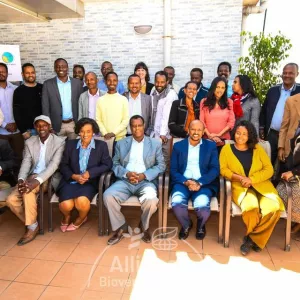Enabling agroecological transitions in Ethiopia: The role of incentives, business models and partnership. A blog post of the PSii kick-off workshop
Despite being the second-largest wheat producer in Africa, wheat production is an important source of income and food security for farmers in Ethiopia. Nevertheless, the country heavily relies on imports for more than half of its wheat consumption. However, the effort to produce wheat mainly follows an industrial agriculture approach which is characterized by intensive external input uses. Consequently, it

Enabling agroecological transitions in Ethiopia: The role of incentives, business models and partnership. A blog post of the PSii kick-off workshop
Despite being the second-largest wheat producer in Africa, wheat production is an important source of income and food security for farmers in Ethiopia. Nevertheless, the country heavily relies on imports for more than half of its wheat consumption. However, the effort to produce wheat mainly follows an industrial agriculture approach which is characterized by intensive external input uses. Consequently, it might not be sustainable as it has an impact on the environment and natural resources. Furthermore, climate change is expected to worsen the situation of wheat production unless agroecological practices are implemented. To address this, the TRANSITIONS- PSii project aims to implement agroecological practices as solutions to enhance sustainable wheat production, maintain the environment, and reduce dependency on imports.
The TRANSITIONS-PSii project kick-off workshop held on 29-30th November 2023 in Addis Ababa Ethiopia, brought together stakeholders from various organizations, including the Ministry of Agriculture, Ethiopian Institute of Agricultural Research, Haramaya University,MELCA Ethiopia (a civil society organization [CSO]), the International Fund for Agricultural Development (IFAD), and researchers from Goba, Munesa, and Lemo districts of Oromia region.
In Ethiopia, the TRANSITIONS-PSii project is working with farmers, CSOs, universities, researchers, and policymakers to develop inclusive incentive structures for private and public sector stakeholders to invest in agroecological transitions. These structures will help ensure that the benefits of agroecological practices are shared by all stakeholders and contribute to achieving the Sustainable Development Goals (SDGs) by reducing negative environmental impacts and improving food and nutrition security.

